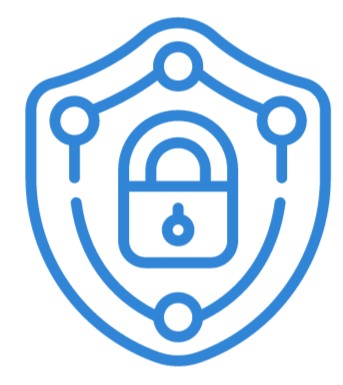

In the digital age of healthcare, where patient data is stored and transmitted electronically, safeguarding sensitive information has become paramount. The Health Insurance Portability and Accountability Act (HIPAA) stands as the cornerstone of patient privacy and data security regulations in the United States. Let's delve into the intricacies of HIPAA and its critical role in protecting patient confidentiality and securing healthcare information.
Understanding HIPAA: An OverviewHIPAA, enacted in 1996, aims to safeguard individuals' medical information while facilitating the efficient flow of healthcare data. The law consists of several key components, including the Privacy Rule, Security Rule, and Breach Notification Rule. These rules establish standards for protecting patients' protected health information (PHI) and outline the responsibilities of healthcare providers, health plans, and business associates in ensuring compliance.
The HIPAA Privacy Rule: Safeguarding Patient InformationThe HIPAA Privacy Rule establishes national standards for protecting individuals' medical records and other PHI. It grants patients certain rights regarding their health information, such as the right to access their records, request corrections, and control how their information is used and disclosed. Covered entities, including healthcare providers and health plans, must implement policies and procedures to safeguard PHI and ensure its confidentiality.
The HIPAA Security Rule: Securing Electronic Protected Health Information (ePHI)Achieving HIPAA Compliance: Best Practices for Healthcare Organizations
1 - Conduct regular risk assessments to identify and mitigate security vulnerabilities.
2 - Implement policies and procedures that comply with HIPAA requirements and train employees on privacy and security practices.
3 - Encrypt electronic PHI and implement access controls to restrict unauthorized access.
4 - Enter into business associate agreements (BAAs) with vendors and partners who handle PHI to ensure compliance.
5 - Establish incident response and breach notification procedures to respond promptly to security incidents.
The HIPAA Security Rule sets standards for securing electronic protected health information (ePHI) against unauthorized access, use, or disclosure. HIPAA Breach Notification Rule requires covered entities to notify affected individuals, the Department of Health and Human Services (HHS), and, in some cases, the media following a breach of unsecured PHI. Breaches involving the unauthorized acquisition, access, use, or disclosure of PHI must be reported to affected individuals without unreasonable delay and no later than 60 days after the discovery of the breach.
Conclusion
HIPAA plays a crucial role in protecting patient privacy and ensuring the security of healthcare information in an increasingly digital world. By adhering to HIPAA regulations and implementing robust security measures, healthcare organizations can safeguard sensitive patient data and maintain patient trust. As technology continues to evolve, ongoing vigilance and commitment to HIPAA compliance are essential to upholding the highest standards of patient care and confidentiality. At Impact RCM, we are fully HIPAA Compliant and our IT team ensures that state-of-the-art technology measures are in place to protect the data and PHI.